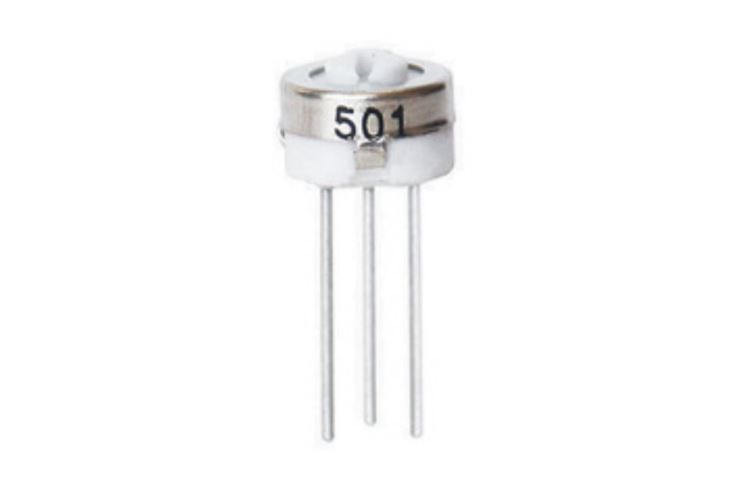Hey there, folks! As a supplier of 3362 Trimming Potentiometers, I get tons of questions from customers. One burning question that keeps popping up is, "Can a 3362 trimming potentiometer be used in a corrosive environment?" Well, let's dig into this topic and find out.
First off, let's understand what a 3362 trimming potentiometer is. A 3362 Trimming Potentiometer is a single - turn potentiometer that's widely used in various electronic circuits. It allows you to adjust the resistance within a circuit, which is super handy for fine - tuning things like voltage levels, signal strength, and more. You can think of it as a little knob that gives you control over the electrical behavior of a circuit.
Now, let's talk about corrosive environments. These are places where there are substances that can eat away at materials over time. Corrosive agents can be things like acids, salts, and moisture. Industries like chemical manufacturing, marine, and wastewater treatment often have these kinds of environments. In these settings, equipment has to be tough enough to withstand the constant attack from these corrosive substances.
So, can our 3362 trimming potentiometer hold up in such a harsh place? Well, it depends on a few factors.
Construction Materials
The materials used to build the 3362 trimming potentiometer play a huge role. Most of these potentiometers have a resistive element, a wiper, and a housing. The resistive element is usually made of a material like cermet (a combination of ceramic and metal). Cermet is pretty durable, but it's not completely immune to corrosion. If it's exposed to strong acids or highly saline environments for a long time, the metal part in the cermet can start to oxidize.


The wiper, which is the part that moves along the resistive element to change the resistance, is also a concern. It's often made of a metal alloy. Again, metals can corrode. If the wiper corrodes, it won't make good contact with the resistive element, which can lead to problems like erratic resistance values and poor performance.
The housing is another important piece. Some potentiometers come with plastic or metal housings. Plastic can be a good choice because it's generally resistant to many corrosive substances. However, some plastics can degrade when exposed to certain chemicals. Metal housings, on the other hand, are more likely to corrode unless they're made of a corrosion - resistant metal like stainless steel.
Protective Coatings
To enhance the corrosion resistance of the 3362 trimming potentiometer, some manufacturers apply protective coatings. These coatings act as a barrier between the potentiometer's components and the corrosive environment. For example, a thin layer of epoxy can be applied to the resistive element and the wiper. Epoxy is resistant to many chemicals and can prevent corrosion to some extent.
But here's the thing: these coatings aren't perfect. Over time, small scratches or cracks can develop in the coating, allowing the corrosive agents to reach the underlying materials. Also, if the coating isn't applied properly, it might not provide full protection.
Sealing
Proper sealing is crucial. A well - sealed potentiometer can keep out moisture and other corrosive substances. Some 3362 trimming potentiometers come with gaskets or O - rings to create a tight seal. This helps to prevent the entry of corrosive agents into the internal components. However, if the sealing is not done right or if the seals get damaged, the potentiometer becomes vulnerable.
In a marine environment, for instance, saltwater is a major threat. Even a small amount of saltwater getting inside the potentiometer can cause corrosion. So, a good seal is like a shield against this kind of attack.
Alternatives
If the corrosive environment is really harsh, you might want to consider alternatives to the 3362 trimming potentiometer. For example, the 3329 Trimming Potentiometer or the 3386 Trimming Potentiometer might have different construction or materials that make them more suitable. These alternatives could have better corrosion - resistant materials or more advanced protective features.
Testing and Monitoring
Before using the 3362 trimming potentiometer in a corrosive environment, it's a good idea to do some testing. You can simulate the corrosive conditions in a lab and see how the potentiometer performs over a period of time. Monitor things like resistance stability, contact resistance, and mechanical movement. If you notice any signs of degradation, it might be a sign that the potentiometer won't work well in the actual environment.
Once the potentiometer is installed in the corrosive environment, regular monitoring is also important. Check for any visible signs of corrosion, such as rust or discoloration. You can also measure the electrical performance to make sure it's still within the acceptable range.
Conclusion
So, can a 3362 trimming potentiometer be used in a corrosive environment? The answer is, it might be possible, but it's not a guaranteed yes. It depends on the specific conditions of the corrosive environment, the construction of the potentiometer, and the level of protection it has.
If you're thinking about using a 3362 trimming potentiometer in a corrosive setting, I'd recommend having a chat with us. We're here to help you figure out if it's the right choice for your application. We can also provide more information about the materials, protective features, and any additional steps you can take to increase its lifespan in a harsh environment.
Whether you're in the chemical industry, working on a marine project, or involved in any other field with corrosive conditions, we're ready to assist you. Don't hesitate to reach out to discuss your requirements and see how our 3362 trimming potentiometer can fit into your setup. Let's work together to find the best solution for your electronic control needs.
References
- Textbooks on electronic components and materials science
- Industry standards for potentiometers in harsh environments




